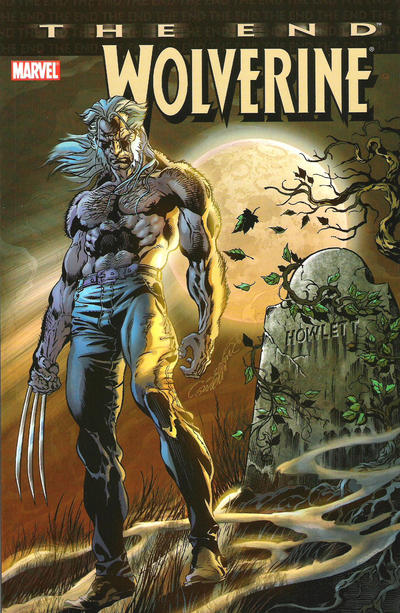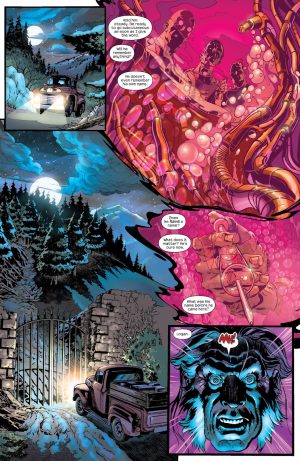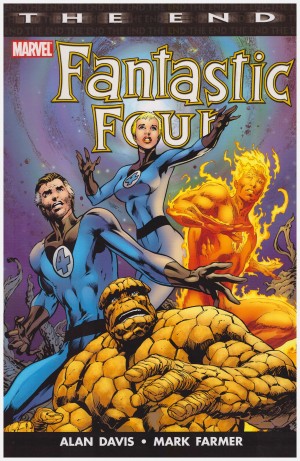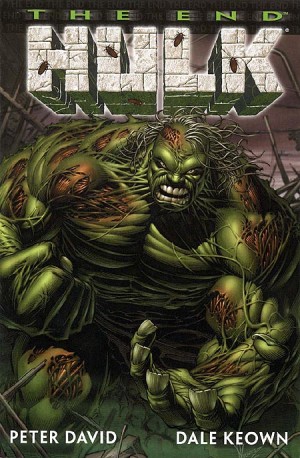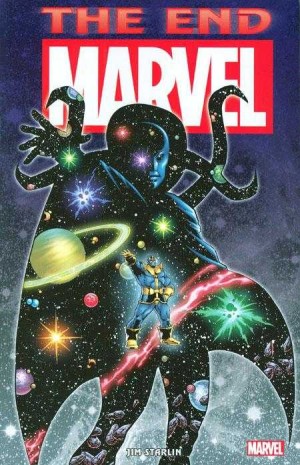Review by Frank Plowright
In the early years of the 21st century Marvel published a succession of one-shots and miniseries looking forward in time to the last days of their assorted characters. Wolverine’s last days followed the original Old Man Logan story, but preceded the 2015 “death” of Wolverine.
Paul Jenkins was one of the creative team behind Wolverine’s long awaited and surprising origin story, so his supplying the other end of the equation has a pleasing symmetry. He starts well, first introducing a Logan who’s old and arthritic, talks to himself and has been living in isolation for decades. He’s rejuvenated, though, when someone who seems to know an awful lot about him begins playing mind games.
On Origin Jenkins was paired with Adam Kubert, among the top rank of superhero artists. For The End his collaborator is Claudio Castellini, talented for sure, but an artist to whom it’s never occurred that superheroes can be drawn with subtlety. Rarely is it the case that someone is drawn other than in close focus straining every sinew or howling in anger or anguish. It’s not pretty.
Just as it was to his life, it’s key that Weapon X captured James Howlett and removed many of his memories. Gaps have been filled over the years, but not every memory has been restored. Jenkins takes an interesting path by making few concessions to the future. For four chapters almost everything could be the Marvel world of today apart from Wolverine being so old, but Jenkins reaches back to the past for his main plot device. The result is a reflection of a life with claws the way it might have been under other circumstances.
As four chapters The End makes for an interesting mystery and revelation arc drawn to a natural close, but the need is for six chapters and that’s when the future intrudes and The End declines. The final two chapters are tacked on. There’s nothing left to say other than repetition, Logan is improbably rejuvenated, the era’s X-Men are caricatures and at the end it’s not the end after all. The End is dragged down by the art, but that’s not the entire problem, and in the end it disappoints.
